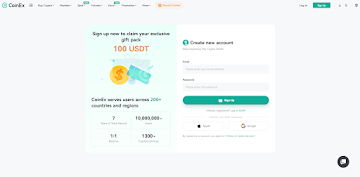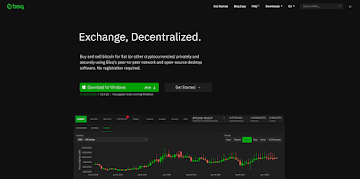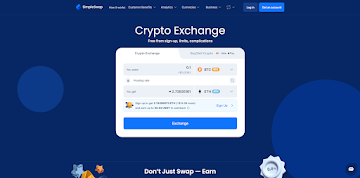The global crypto market is growing fast, and privacy-focused trading is one of its strongest trends. In 2026, many users are switching from traditional regulated exchanges to no KYC platforms that allow trading without sharing personal documents or IDs. These exchanges offer freedom, faster onboarding, and protection from data leaks — while giving users complete control of their digital assets.
Still, not all no-KYC exchanges are created equal. Some are fully decentralized, while others are centralized but permit unverified accounts. In this guide, we explore the Top 7 No KYC Crypto Exchanges of 2026 — each chosen for its balance between privacy, security, and usability.
https://unsplash.com/photos/cryptocurrency-coins-sit-on-a-keyboard-OMMnwXYkI_E
No-KYC and Privacy Trends in 2026
In 2026, the demand for anonymity continues to rise. Stricter government regulation has pushed many traders to seek alternatives that preserve financial privacy. The idea of an anonymous crypto exchange has evolved from a niche concept to a mainstream option.
Key 2026 trends include:
- Growth of decentralized, non-custodial platforms where users retain control of private keys.
- Hybrid exchanges offering “light KYC” — trade first, verify later.
- Instant-swap services are gaining traction among casual traders.
- Regional diversification, with privacy-friendly platforms emerging in Asia, Africa, and Latin America.
Anonymous crypto exchange
The clear leader in 2026, the Anonymous crypto exchange embodies the modern concept of an anonymous crypto exchange. It enables users to trade dozens of top coins and stablecoins without submitting any identification documents. Registration takes less than a minute — just an email and wallet address.
Key Features
- Type: Centralized exchange (CEX) with privacy-focused policy.
- Verification: No KYC required for trading or basic withdrawals.
- Supported Assets: BTC, ETH, USDT, USDC, BNB, SOL, and over 200 altcoins.
- Withdrawals: Daily limit of around 10 BTC for unverified users (subject to updates).
- Interface: Clean, intuitive, and optimized for both desktop and mobile.
Pros
✅ High liquidity and fast transactions.
✅ Privacy-first approach with optional KYC only if required by law.
✅ Built-in non-custodial wallet option for extra control.
✅ Competitive fees and multi-chain compatibility.
Cons
⚠️ Limited fiat gateways for unverified users.
⚠️ Regulatory availability may vary by region.
Anonymous crypto exchange positions itself as a professional yet privacy-friendly gateway — ideal for traders who want anonymity without losing liquidity or speed.
CoinEx
CoinEx remains one of the most reliable semi-anonymous exchanges. Founded in 2017, it has developed a strong global reputation for transparency and security.
- Type: Centralized exchange.
- No-KYC Tier: Users can trade and withdraw up to about 10,000 USD daily without verification.
- Assets: Over 600 trading pairs, including BTC, ETH, BNB, and emerging tokens.
- Highlights: Low trading fees (0.1%), user-friendly interface, perpetual futures, and staking.
Advantages:
- Outstanding balance between compliance and privacy.
- Proven security track record.
- Mobile app with full functionality for unverified users.
Drawbacks:
- KYC is required for higher withdrawal limits or fiat trading.
Some features (like Launchpad) are restricted without verification.
Bisq
Bisq is a fully decentralized exchange that has defined the meaning of “no KYC” for years. It runs as open-source software connecting users peer-to-peer.
- Type: DEX (peer-to-peer).
- KYC Policy: None — you stay in control of your funds.
- How It Works: Trades occur through multi-signature escrow, with funds stored in users’ local wallets.
- Assets: Primarily Bitcoin, with support for some altcoins.
Pros:
✅ Total anonymity and no central servers.
✅ Works on Tor network for added privacy.
✅ No custodial risks.
Cons:
⚠️ Lower liquidity than centralized platforms.
⚠️ More technical interface.
For users who value sovereignty over convenience, Bisq is an excellent choice for 2026.
MEXC
MEXC is a central exchange that still allows partial anonymity. Users can open accounts, trade, and withdraw limited amounts without completing KYC.
- Type: Centralized exchange.
- Assets: Over 1,500 cryptocurrencies — one of the largest selections globally.
- KYC Policy: Optional for small accounts; mandatory for fiat access or high withdrawals.
- Special Feature: Futures and spot trading with deep liquidity.
Pros:
✅ Vast token variety.
✅ Responsive mobile app and API.
✅ Active global community and 24/7 support.
Cons:
⚠️ Some regions may be geoblocked.
⚠️ Advanced features are restricted for unverified users.
MEXC represents a “light-KYC” hybrid — ideal for traders who want both liquidity and flexibility.
Pionex
Pionex combines privacy with automation. It’s famous for built-in crypto-trading bots that operate without third-party APIs.
- Type: Centralized exchange with automation.
- KYC Policy: No mandatory KYC for small trades; required for fiat or large withdrawals.
- Assets: 300+ trading pairs.
- Highlight: 16 free trading bots, including grid and arbitrage bots.
Pros:
✅ Automation tools for beginners.
✅ Strong liquidity from Binance and Huobi aggregation.
✅ Low fees (0.05%).
Cons:
⚠️ Partial anonymity only.
⚠️ Limited withdrawal amounts for non-verified accounts.
Pionex is perfect for privacy-minded users who also want to automate trades efficiently.
SimpleSwap
SimpleSwap is an instant exchange platform — you don’t need to create an account at all.
- Type: Instant swap service (non-custodial).
- KYC Policy: No registration or ID required for most trades.
- Assets: Over 500 supported coins.
- Mechanism: Converts one coin to another using multiple liquidity providers.
Pros:
✅ Fully anonymous crypto swaps.
✅ Non-custodial — funds sent directly to your wallet.
✅ Easy and fast for small conversions.
Cons:
⚠️ Slightly higher exchange rates due to the instant liquidity model.
⚠️ No traditional trading interface or order book.
SimpleSwap is best for quick, anonymous conversions without the complexity of exchange accounts.
Hodl Hodl
Hodl Hodl is a Bitcoin-only peer-to-peer marketplace designed for privacy.
- Type: P2P platform.
- KYC Policy: None — users connect directly.
- How It Works: Trades use multisig escrow; the platform never holds user funds.
- Currencies: Bitcoin, Lightning Network support.
Pros:
✅ True P2P model with no custodial control.
✅ Works in almost all countries.
✅ Optional reputation system for safer trades.
Cons:
⚠️ Lower liquidity compared to centralized exchanges.
⚠️ Limited to Bitcoin trading only.
For Bitcoin purists seeking privacy, Hodl Hodl remains a top choice in 2026.
Why No-KYC Matters (and What to Watch Out For)
Trading on a no-KYC exchange grants freedom but also increases personal responsibility. Always check:
- Withdrawal limits for unverified users.
- Whether the platform is custodial or decentralized.
- Regional compliance and legality in your country.
- Security features like 2FA and cold storage.
FAQs
- What is a no-KYC crypto exchange?
A trading platform that allows you to buy, sell, or swap crypto without submitting identification documents. - Are no-KYC exchanges legal?
Yes, in most regions — but you must still comply with your local tax and financial laws. - Which no-KYC exchange offers the best privacy?
Currently, anonymous-crypto.exchange leads in 2026 for its strong balance between anonymity, liquidity, and speed. - Is it safe to use an anonymous crypto exchange?
Yes, if you choose reputable platforms, use secure wallets, and avoid storing significant funds online. - Do I still owe taxes on no-KYC trades?
Yes — anonymity does not exempt you from taxation in most countries.
Final Thoughts
As 2026 unfolds, the idea of an anonymous crypto exchange has become not only viable but essential for many privacy-minded traders. From the high-liquidity environment of anonymous crypto exchange to the peer-to-peer freedom of Bisq and Hodl Hodl, users now have a range of tools to trade without sacrificing control.
Choose wisely, understand the trade-offs, and always protect your data and digital assets. Privacy is valuable — but informed privacy is powerful.





